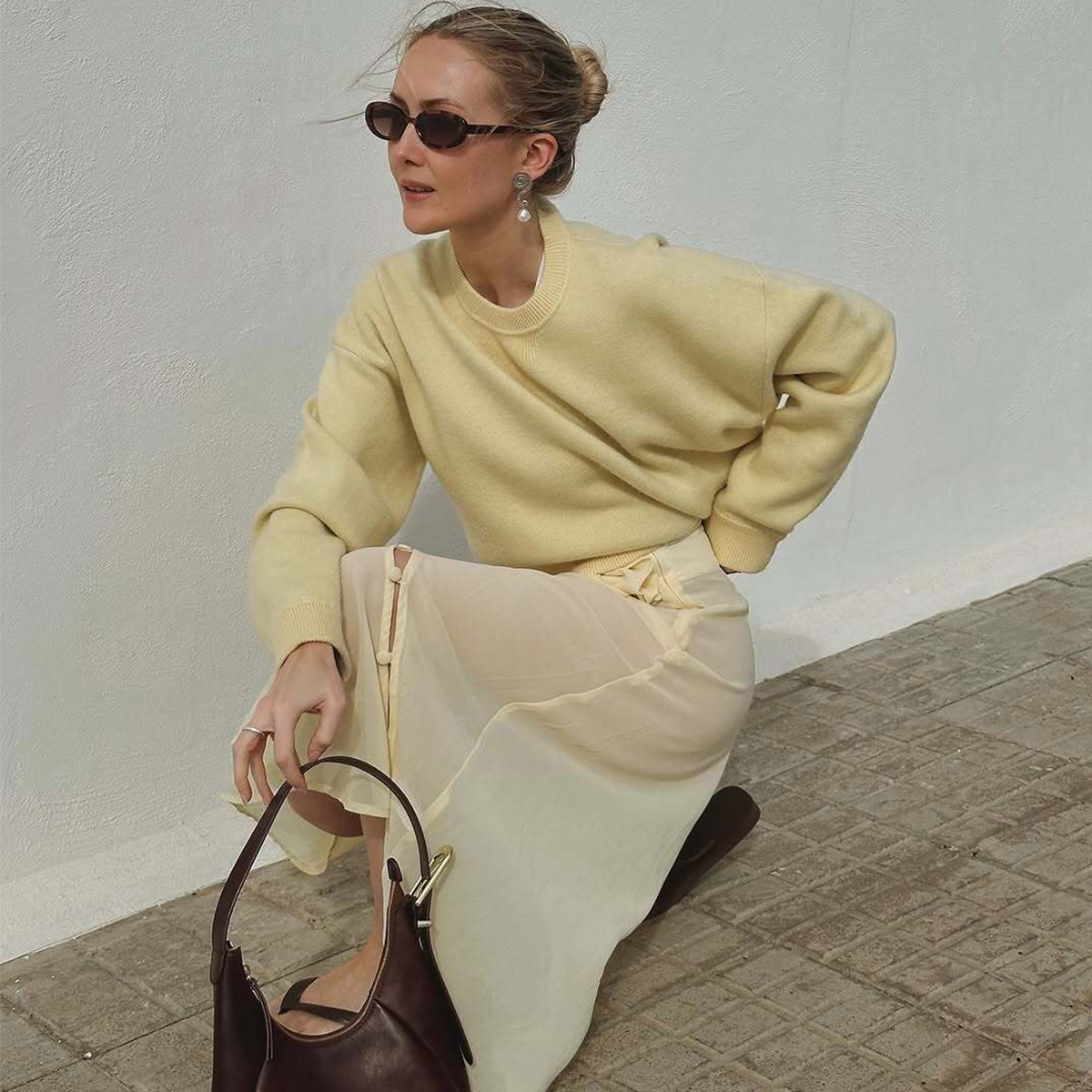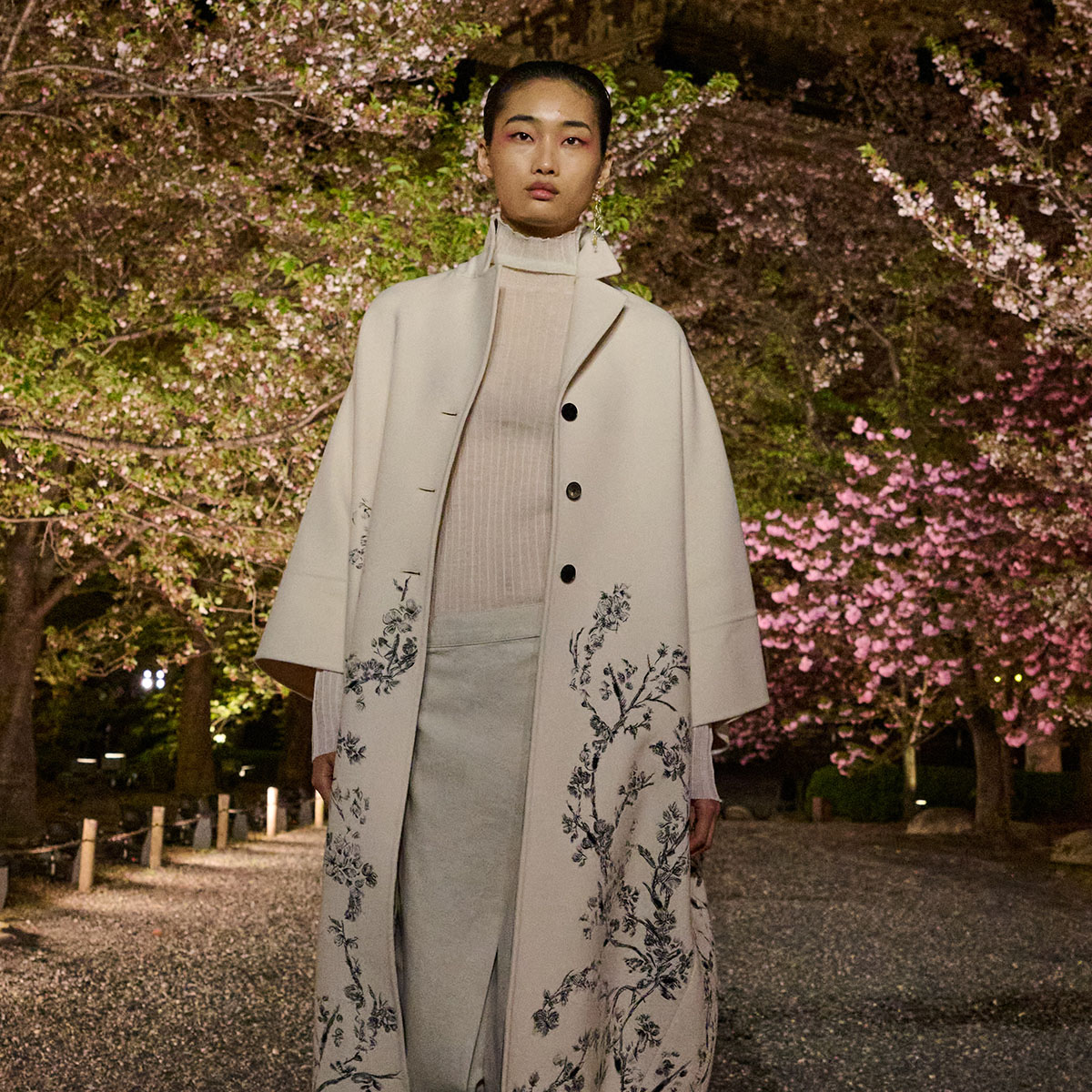Tallulah Willis on Mental Health, Fashion, and Quarantining With Her Family
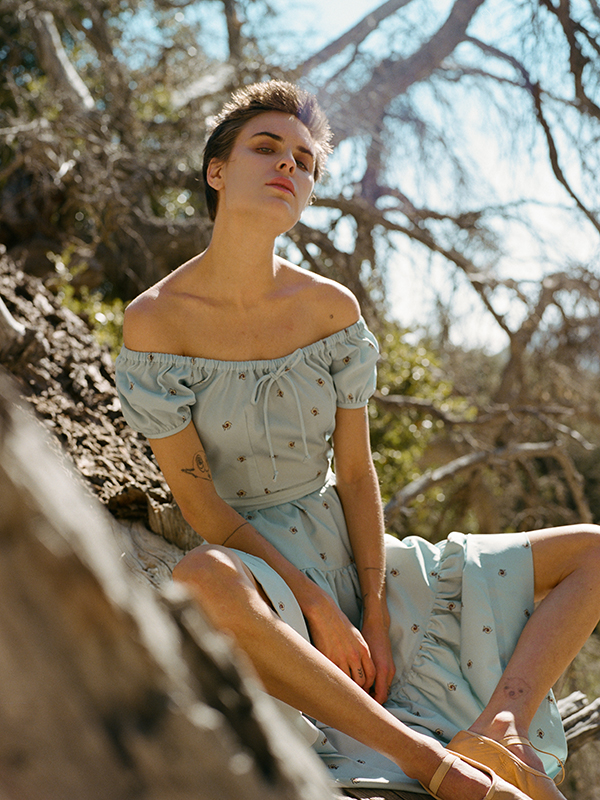
Growing up with famous parents and in the spotlight probably wasn't easy, but Tallulah Willis has made the most of it by using her platform for good. The Los Angeles–based artist, designer, and mental health advocate continues to openly share her own struggles and mental health journey on Instagram. "I was born with somewhat of a platform," Willis told THE/THIRTY. "And I always knew from a very early age, from a very early point of social media, that that meant I had a responsibility. That meant that I had to make it matter to say something of worth and value. That has not left me or been lost on me."
She launched Wyllis earlier this year, a ready-to-wear clothing line that speaks to inclusivity, healing, self-love, and mental health awareness. The summer collection features dresses, separates, and shoes and is available in sizes XS to 3X. The brand will also donate 10% of its proceeds for one month to The Loveland Foundation, the organization Rachel Cargle founded with the mission to make mental health services accessible to Black women and girls.
We chatted with Willis about her collection, what it was like quarantining with her extended family, and how she takes care of her mental health.
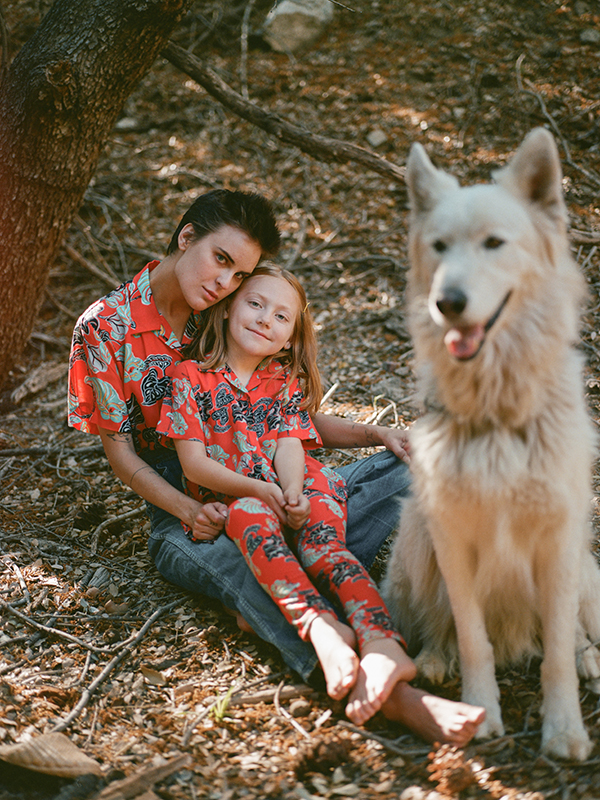
Why was it important to weave mental health awareness into your brand? What was the thought process behind that?
Mental health has been paramount in my adulthood. Understanding my mental health, understanding my journey in my early teens and adolescence, I had a lot of feelings and no language around what was happening, and what this was, and what these feelings were. That can cause a lot of loneliness and the polarizing feeling of not being heard and being alone. As I got older and I started to get an understanding of what these things were and what anxiety is and what depression is and what these certain diagnoses are, it created a lot more room for me to have acceptance for myself.
I think the thing about mental health is it's constant. It's well-being. It's "How are you doing today?" It's not fixed by one thing. It's kind of a collaborative effort of yourself, of your support system, of the people around you, and how you live your life. A lot of things play into it. I wanted to be a part of the movement of healing. I wanted to also integrate my love for clothing and my passion for fashion into something that also I'm very passionate about, which is mental health.
I felt like a year and a half ago, when this idea really came into light, I was in my own real significant low. The designing and the prospect of creating this line was my anchor out of my depression. It felt like, how can we honor what I had just gone through? How can I honor what other people are going through, and how can I create longevity and sustainability around advocacy?
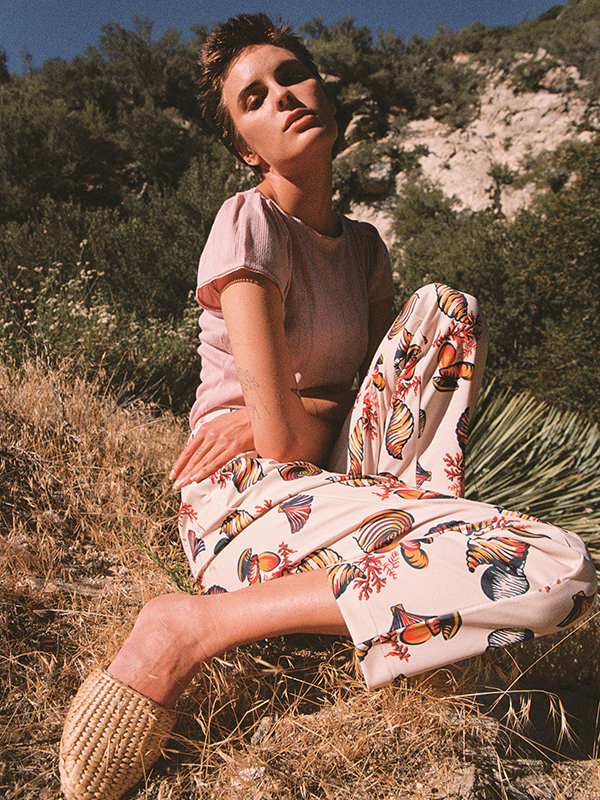
What was your inspiration for this collection? How was planning the launch in the midst of everything that is going on right now?
For this collection, I wanted something that was really bright and colorful, really littered with prints. The majority of the prints actually are based on vintage pieces. So I wanted to kind of bring those into the modern-day and use shapes and silhouettes that had real vintage-inspired elements but for a varying body type. I'd grown up with my dad wearing Hawaiian button-downs and my mom having vintage dresses and vintage pieces. I wanted something that was really just fun. I think I was definitely connecting to a moment where, through depression, I kind of broke through, and I found my footing again. I always found that when that happened, I veered less toward the neutrals and more toward kind of darker tones that I had been wearing and wanted to be in a lot of bolder prints and bolder outfits.
When you're wearing a pair of seashell pants, when you're wearing something really bright, I think that you're saying to the world, "I'm taking up space. I'm okay to be here, and I'm not apologizing or making myself smaller." That was something that was really cool and important to me.
In terms of the launch, we stopped and started, and we were initially supposed to launch the collection in March, and then when we came back online, I really made a considerable effort to be sensitive and aware of not promoting the brand for a couple of months of quarantine because it didn't feel appropriate. So overall, there's just been some really strong choices that have been made on how we presented the brand in these early days, given the climate of the world and always having that take precedence over our agenda. I think that that is something I'm really proud of.
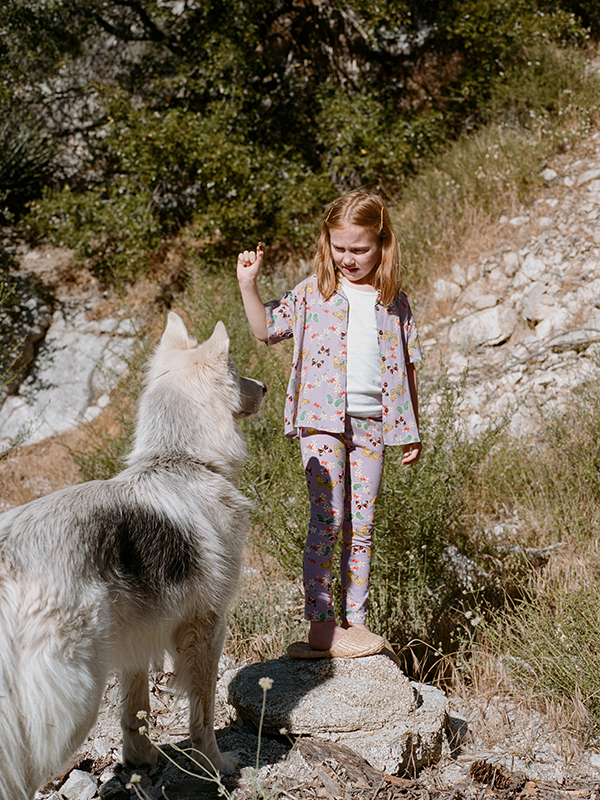
How did you develop your artwork and artistic point of view?
So for me, with art, I have always been really drawn to really simple illustrations. I love all different kinds of mediums of art, but just from my own hand, Shel Silverstein is a huge influence of mine. I love this idea of really evocative, emotional, emotionally charged illustrations but ones that are very simple in design that don't say much, but it's the curve of a mouse or the position of nostrils that creates a real expression on a face. With that, I've really kind of just let that be my lead with my own artwork.
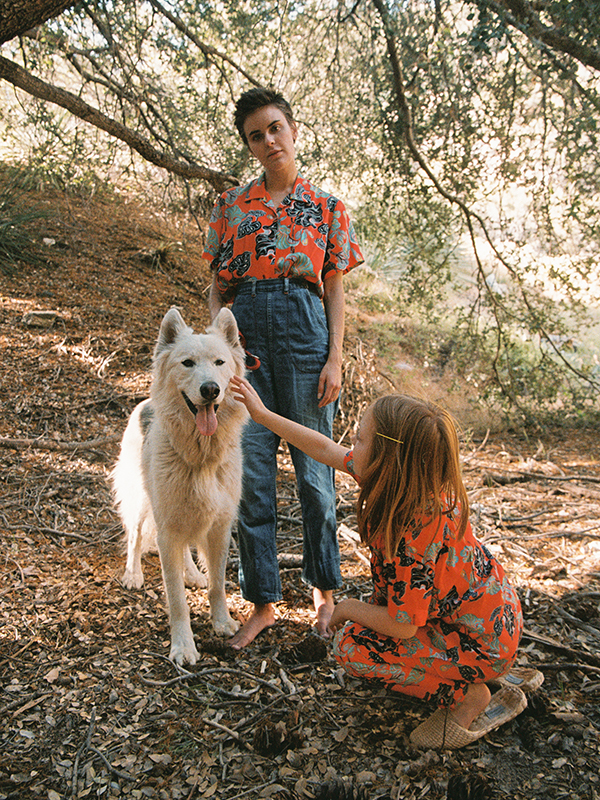
I really admire your candidness, especially on social media. Why do you think it's so important for you to share your own journey?
For me, I think just the way that I grew up in the fact that there was a lot of lack of privacy, it kind of toughened my skin in so far as I don't have fear of something coming out or something being revealed. I always felt like it was better to talk about it yourself and have it come from your own voice.
I also found that creating authentic dialogue and using Instagram as a platform for connection and then creating community and network through honest conversation, it's so much better than trying to post a photo to lift yourself onto a higher platform. It's always fun, and it's always wonderful to have a photo of yourself that you look great in and put it out there and that's great. I do it. A lot of people do it. I have no judgment on it, but I also think that there needs to be a balance of, "I'm not perfect. These are the things that still plague me. I'm a smorgasbord kind of person. I'm hypercritical of myself. I have really intense body dysmorphia, self-esteem issues, insecurities. And yet, I love flaunting and posting a photo in a skimpy little outfit." I don't think that the two are mutually exclusive. I think that you can still have those moments of like, I feel good this hour, this moment, these five minutes, but I don't know what tomorrow is going to hold, so I want to celebrate that. Just creating that transparency, it fuels my own journey, but it's also made me aware that every time I do that, I get a lot of people telling me how much it's helped them.
I struggle with a lot of skin issues. On top of adult acne, part of my OCD is picking my face in the mirror for hours. And I just randomly posted about that one time, and I had an overwhelming number of people say, "Me too. I do that too. Same, thank you for talking about this." I didn't even know this was something other people did, and those are the kinds of moments where I'm like, wow, this is why I do these things. This is why I want to talk about this stuff. This is why I want to be transparent because I was born with people looking at me. I was born with somewhat of a platform. And I always knew from a very early age, from a very early point of social media, that that meant I had a responsibility. That meant that I had to make it matter to say something of worth and value. That has not left me or been lost on me.
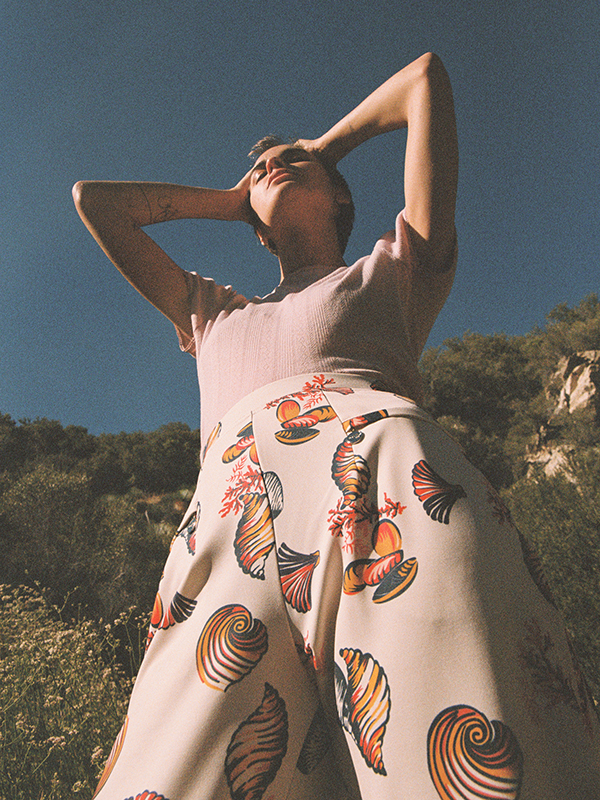
Do you have any important rituals or routines you do for your mental health?
My kind of mental health routine is obsessively looking at puppies online while I'm in the bath. And then a bunch of fantasy fiction books and then taking a nap. That's my best go-to. I wish I said I meditated, I wish I said I took walks, but really, at this moment, it's the best I can do. I've also really recently gotten into real estate, which I think does connect to fashion and just design overall. I've been diving into Los Angeles historical real estate and looking at interior design. I love Domino magazine.
I also have a terrible habit of buying weird lamps online. I have way too many lamps. I just bought this unbelievable, kitschy, hot-pink sailboat lamp that sounds crazy, but it's actually incredible. I am also obsessed with Facebook Marketplace, which is in your local area. You find weird things people are selling, and I'm just such a hunter. I feel like I was an archeologist in a past life because the chase of finding something amazing on the internet brings me ultimate joy. So there were a lot of those weird purchases during quarantine that I'm now kind of wrestling with. Like, "Why did I do that?"
That's my specific version. I would say, though, really, doing art, writing, if you can. I think writing can be so powerful. I love processing my feelings through writing and taking a bath. When you're an empathetic person, you have to be in water; you have to wash the day off of you. You have to just reset. And those are really helpful tools for me.
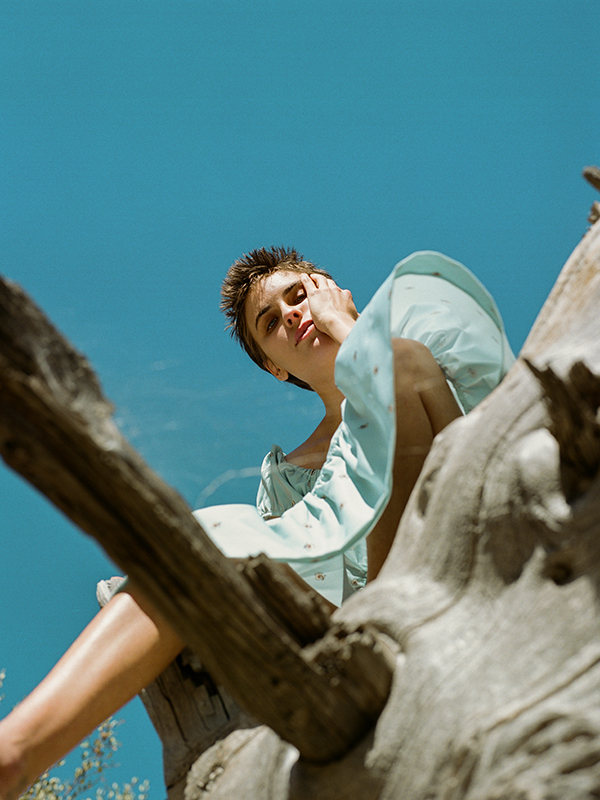
You spent some time with your extended family during quarantine. How was that? And how has this time been for you in general?
Well, I did the first part of quarantine with my whole family and my boyfriend of a month. And that was great. We all got real cozy real quick. I think that when you're an adult, you have your own space, and you have your own time. You visit with people, but you don't often hunker down. And so there was a lot of historical patterning I think that came up and a lot of being like, "Wait, am I a 26-year-old woman? Or am I 11 years old? I can't really figure out where I am in my timeline." I was a great opportunity to deal with some good relationship stuff real quick, real fast. It was actually really beautiful. There was a lot of laughter and a lot of gratitude that we got to spend time with our loved ones, when I know a lot of people are really missing that contact. I'm back in L.A. now. I live with my boyfriend. I have a pod of like two people that I see. I'm such a creature of touch and creature of embrace that I really have the compassion and empathy for those who have not been able to be as embraced in this time. I'm really grateful for the fact that I had people around me. I don't do well being alone; I get very much in my thoughts. And I have my dogs, and we hang out. I don't know if you have a dog, but it really does help.
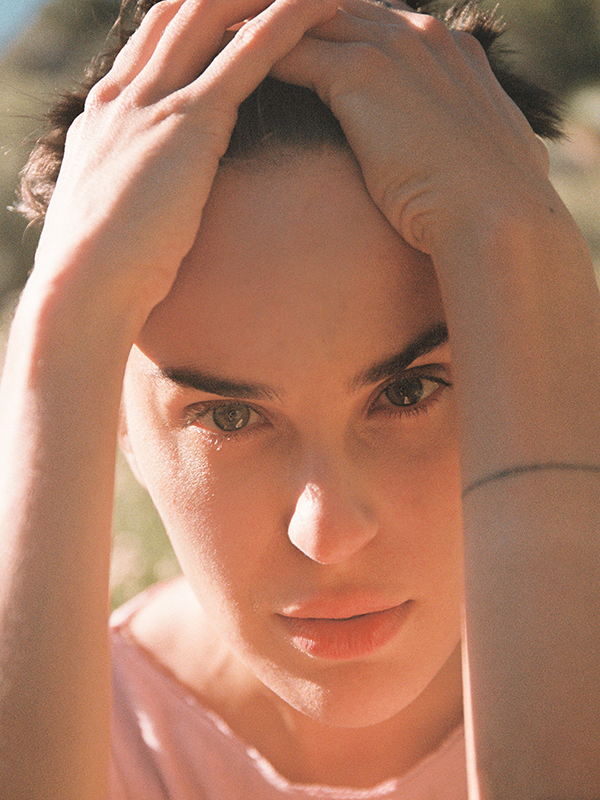
Did you learn anything new about yourself or discover something new during this time?
Absolutely. There's been so much introspection and so much pausing and zooming out and looking in. The things that I've really come to know about myself are that, first and foremost, I am a massively impulsive person. I pretty much act before I think. I'm a very aware person, but I'm impulsive. So I can convince myself the idea is wonderful and has no repercussions and then try to convince people around me. For the most part, the people around me are like, "Maybe we want to pause, you know?" The idea of just stillness, simplicity, and acceptance has been really paramount in the past couple of months for me. I'm definitely a fuzzy person. I just want to always be doing and moving and creating. Living through massive bouts of depression where you can't even get up out of bed for weeks and weeks, then when you finally feel better—at least for me—the light turns on, and I'm charged up, and I don't want to stop. So having to be in sort of a pause is harder for me.
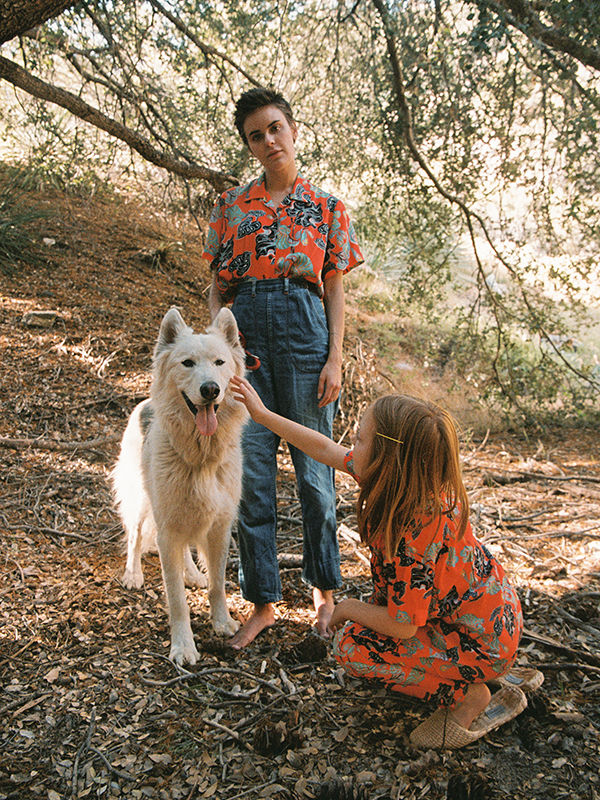
Do you have any advice for people who are struggling right now or going through ups and downs?
Be compassionate with yourself. Be loving. Don't let that inner critic come in. Don't just succumb to the darkness. Find the things that make you feel better for an hour, for a moment. Hold on to those, and give yourself a little bit of freedom that it's not going to look perfect and that you're doing the best you can. I think with all that is coming up right now, a lot of self-love and self-compassion is just so important right now. Whatever emotions are coming up, give it space; give it space to come to the surface. Don't push it down. Don't negate it. Don't think that it's not important. Really let them have a voice. Whether it be in writing or whether it be out loud to yourself, whether it be to a safe friend or family member, a stranger online. But just honor whenever it's coming up.
Next up: 9 Things You Can Do for Your Mental Health When Everything Feels Uncertain
Disclaimer
This article is provided for informational purposes only and is not intended to be used in the place of advice of your physician or other medical professionals. You should always consult with your doctor or healthcare provider first with any health-related questions.
Sarah is lifestyle writer and editor with over 10 years of experience covering health and wellness, interior design, food, beauty, and tech. Born and raised in Los Angeles, she attended New York University and lived in New York for 12 years before returning to L.A. in 2019. In addition to her work at Who What Wear, she held editor roles at Apartment Therapy, Real Simple, House Beautiful, Elle Decor, and The Bump (sister site of The Knot). She has a passion for health and wellness, but she especially loves writing about mental health. Her self-care routine consists of five things: a good workout, “me” time on the regular, an intriguing book/podcast/playlist to unwind after a long day, naps, and decorating her home.
-
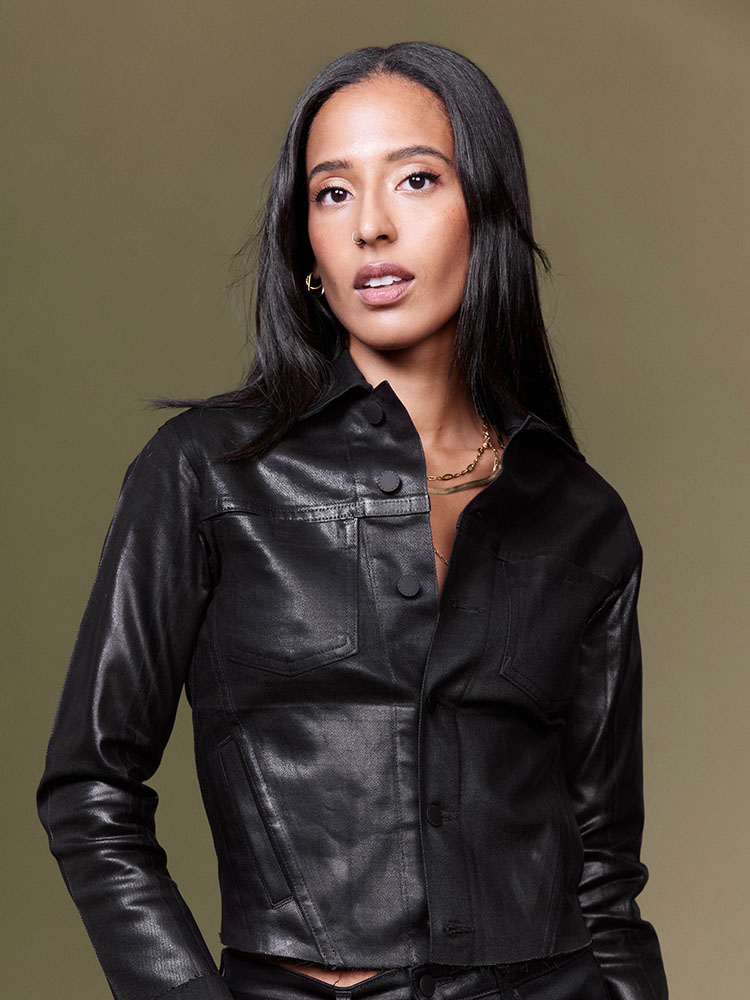 This Founder Shares Why We Should Start Celebrating Rest
This Founder Shares Why We Should Start Celebrating RestBurnout is nothing to be proud of.
By Kia Topps
-
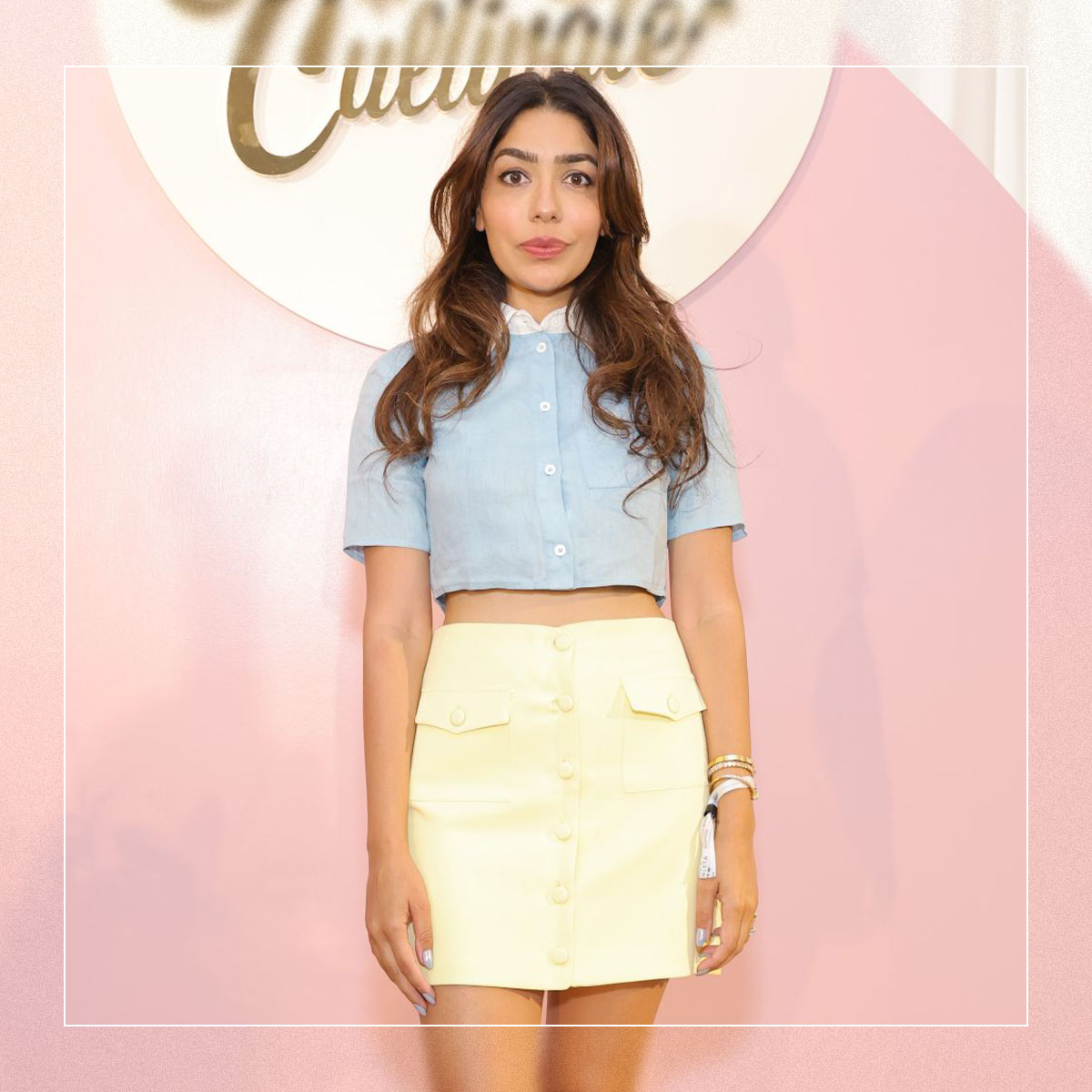 Why Dr. Deepika Chopra Believes that Optimism is Resiliency
Why Dr. Deepika Chopra Believes that Optimism is ResiliencyWhy you should start embracing every feeling.
By Kia Topps
-
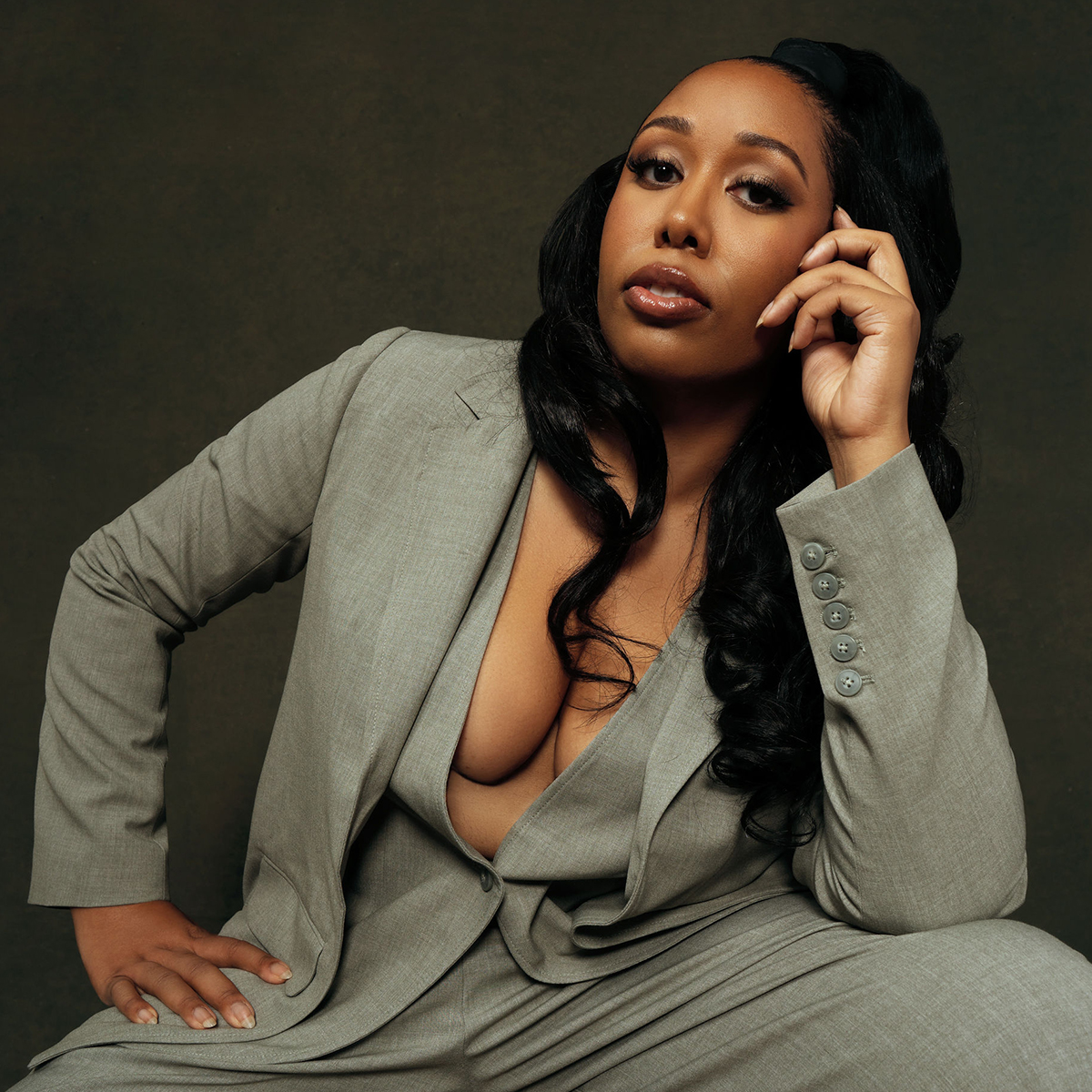 How TikTok's Favorite Photographer Helped Me Find My Confidence
How TikTok's Favorite Photographer Helped Me Find My ConfidenceI renewed my relationship with myself.
By MacKenzie Green
-
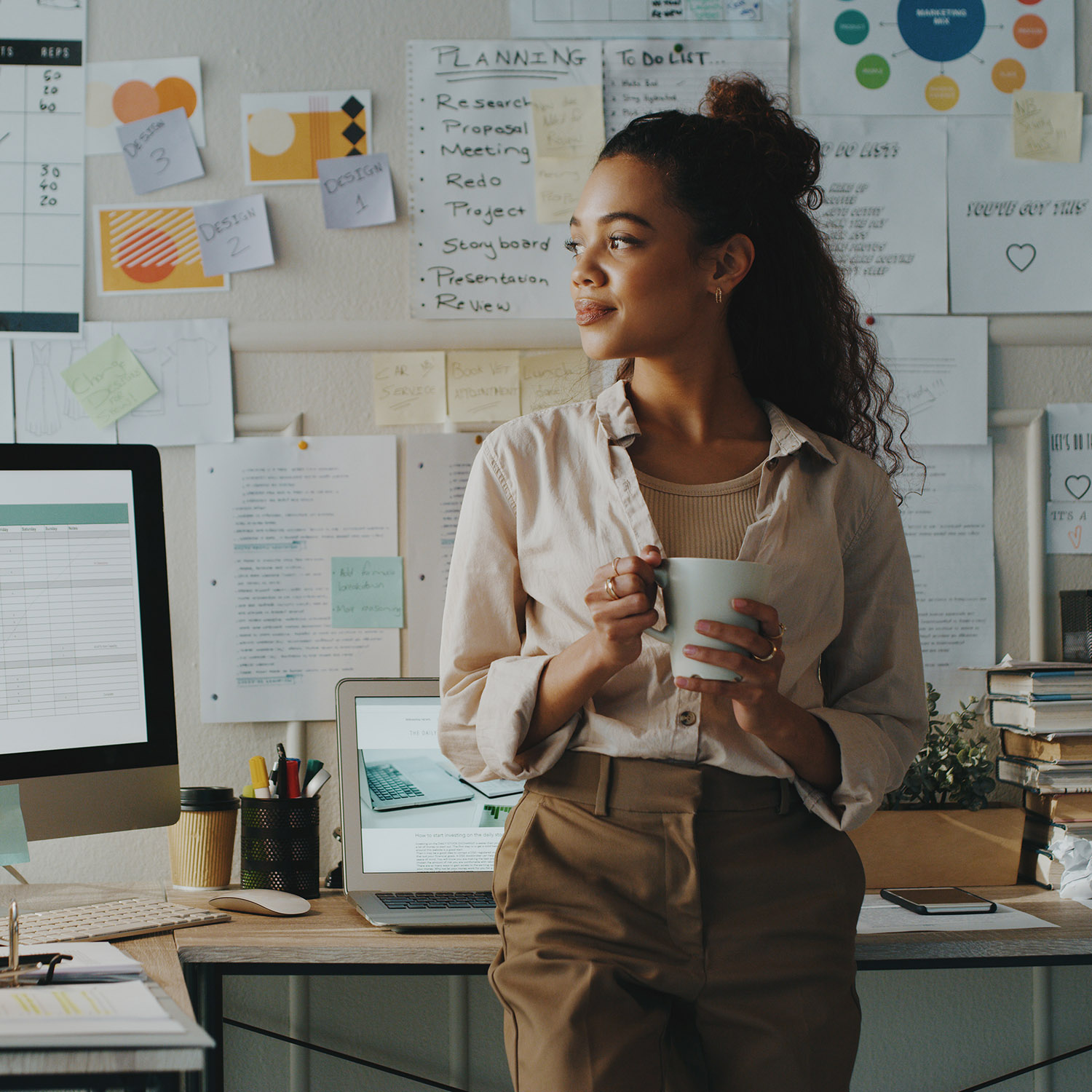 11 Things to Do If You're Dealing With Anxiety at Work
11 Things to Do If You're Dealing With Anxiety at WorkThese can help.
By Casey Clark
-
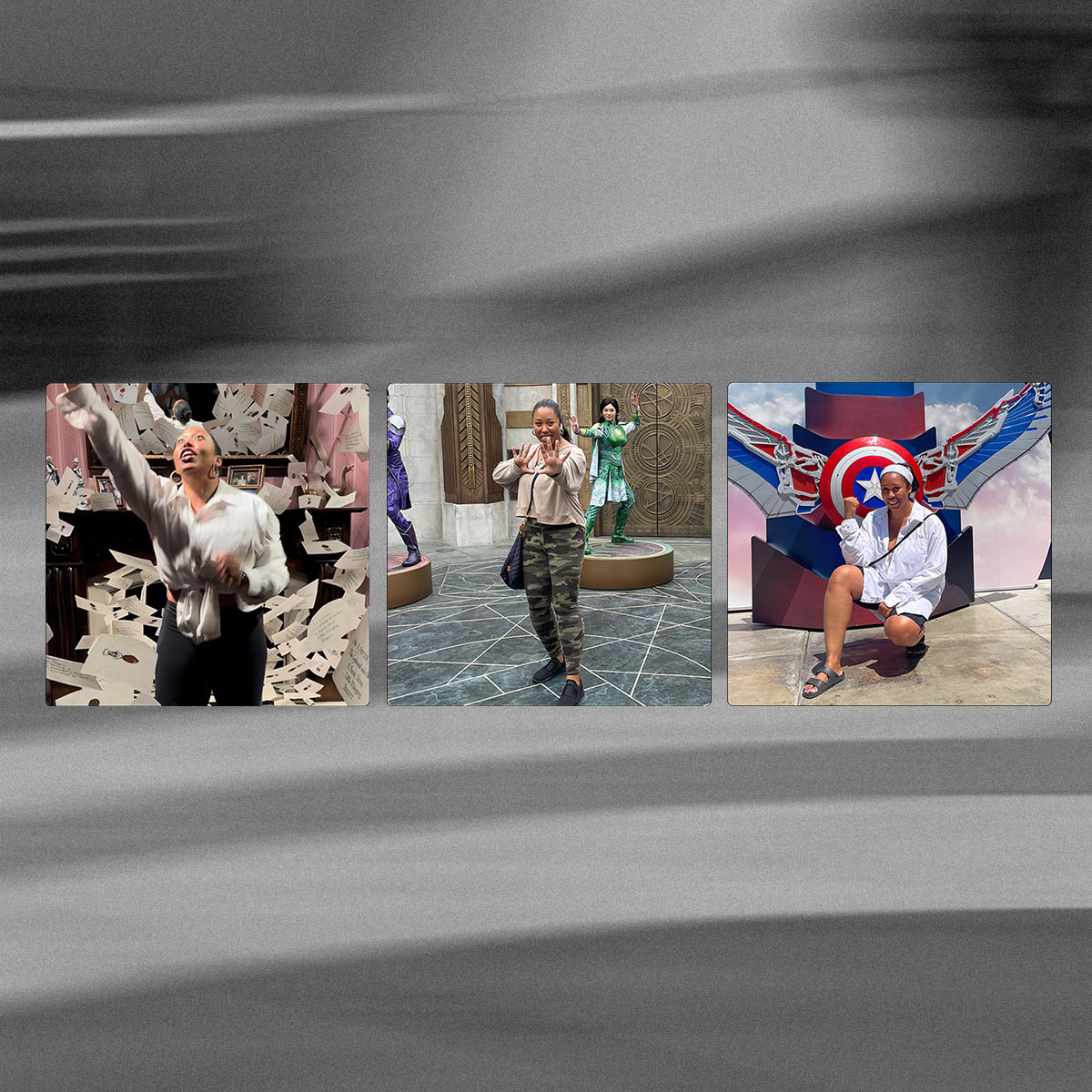 Here's Why I Make Time for "Play" Every Day—and Why You Should Too
Here's Why I Make Time for "Play" Every Day—and Why You Should TooIt's one of the best things you can do for yourself.
By MacKenzie Green
-
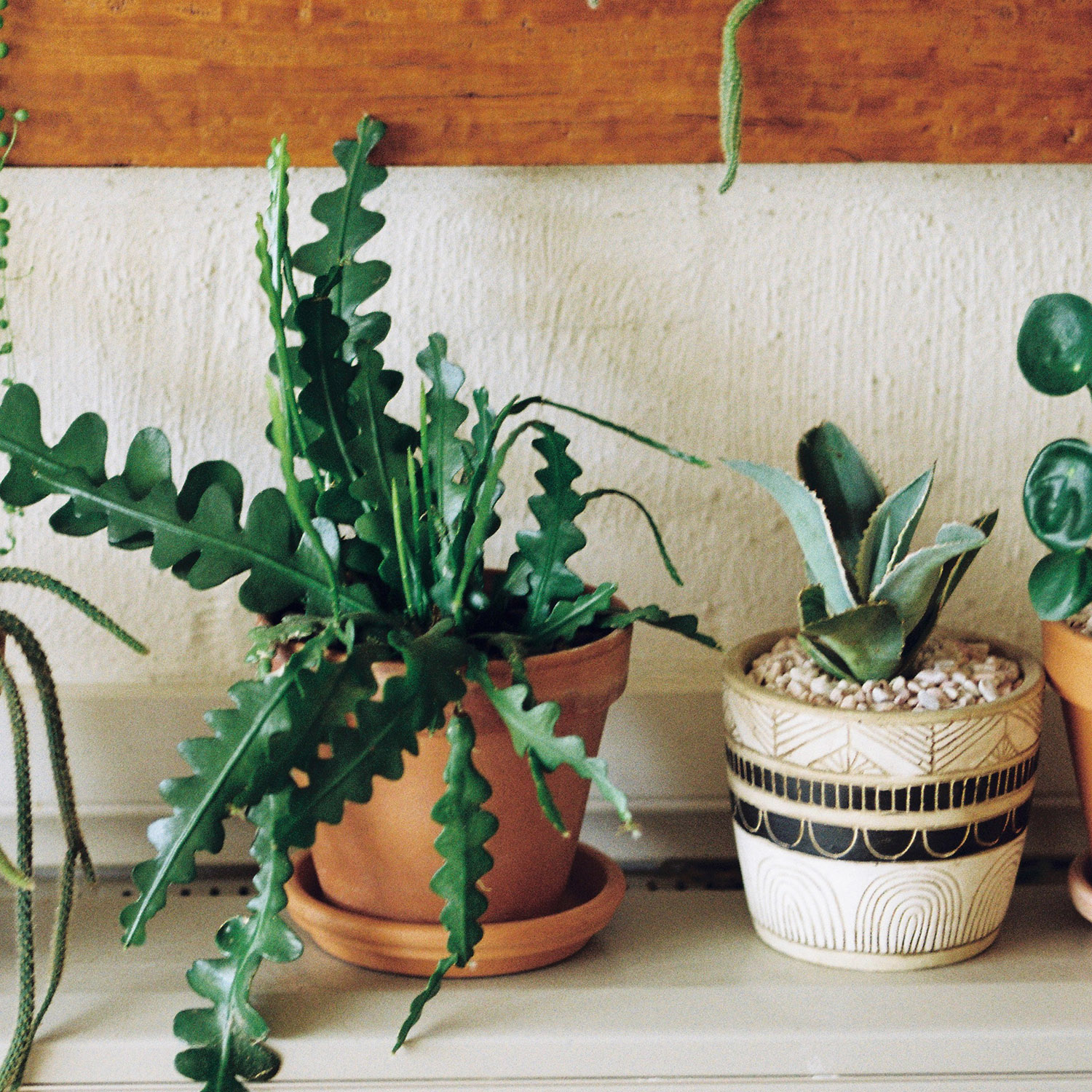 How to Choose a Plant Based on Your Personality Type
How to Choose a Plant Based on Your Personality TypeDo you have a green thumb?
By Sarah Yang
-
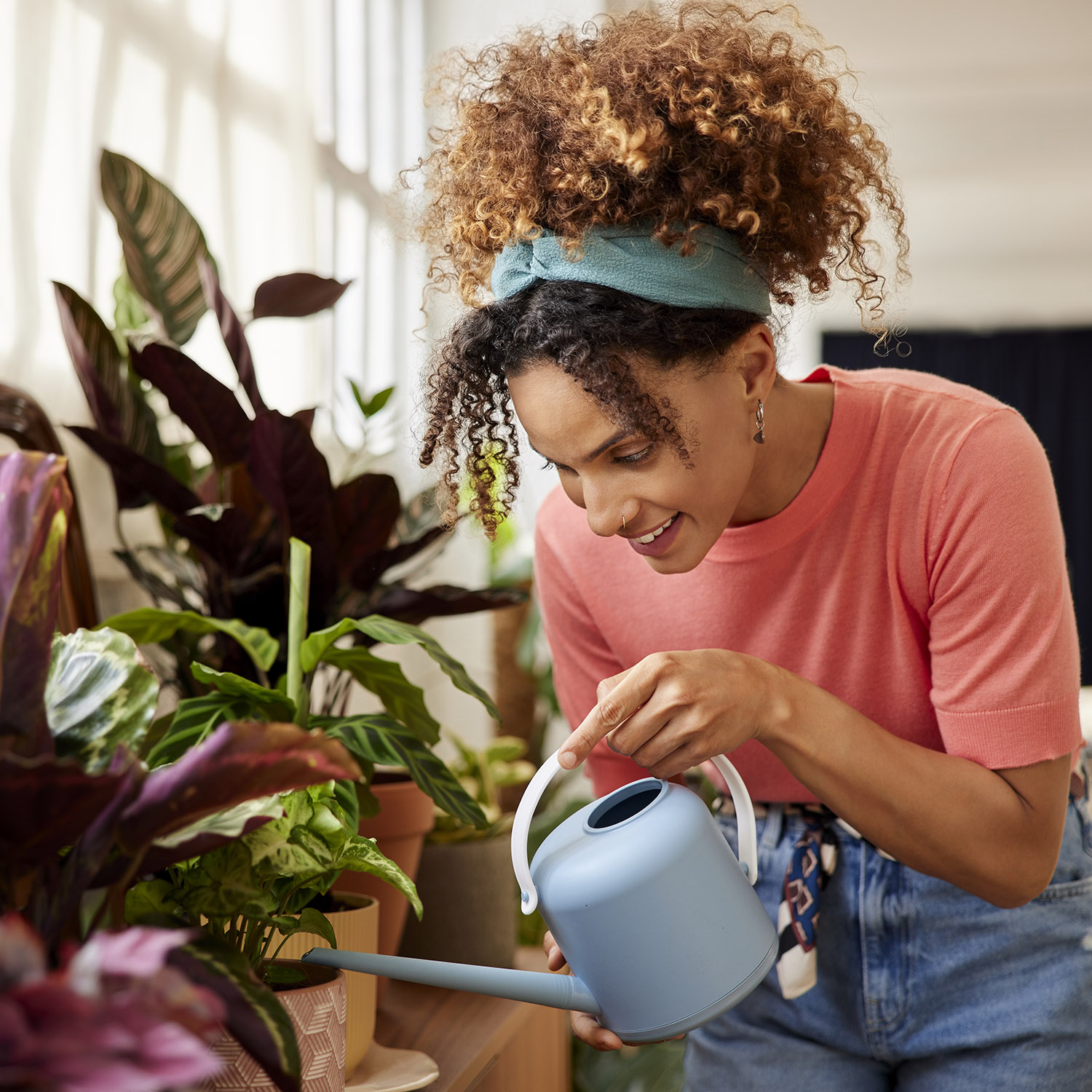 If You're Super Stressed Out, These 17 Things Can Make You Feel Better
If You're Super Stressed Out, These 17 Things Can Make You Feel BetterTry them.
By Sarah Yang
-
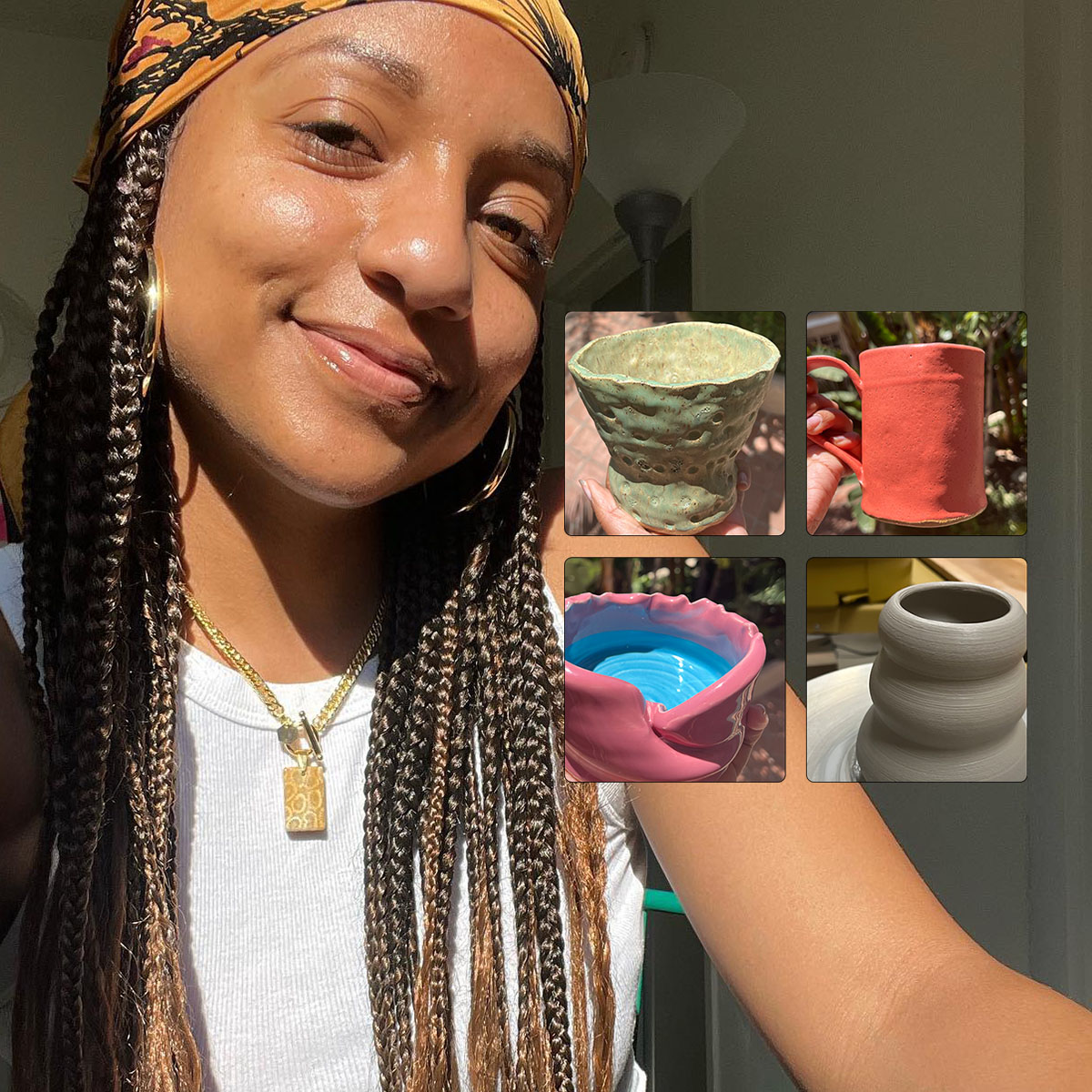 I Tried Pottery Classes as a Way to Better My Mental Health—Here's What Happened
I Tried Pottery Classes as a Way to Better My Mental Health—Here's What HappenedI left my classes with more than I bargained for.
By Kia Topps
